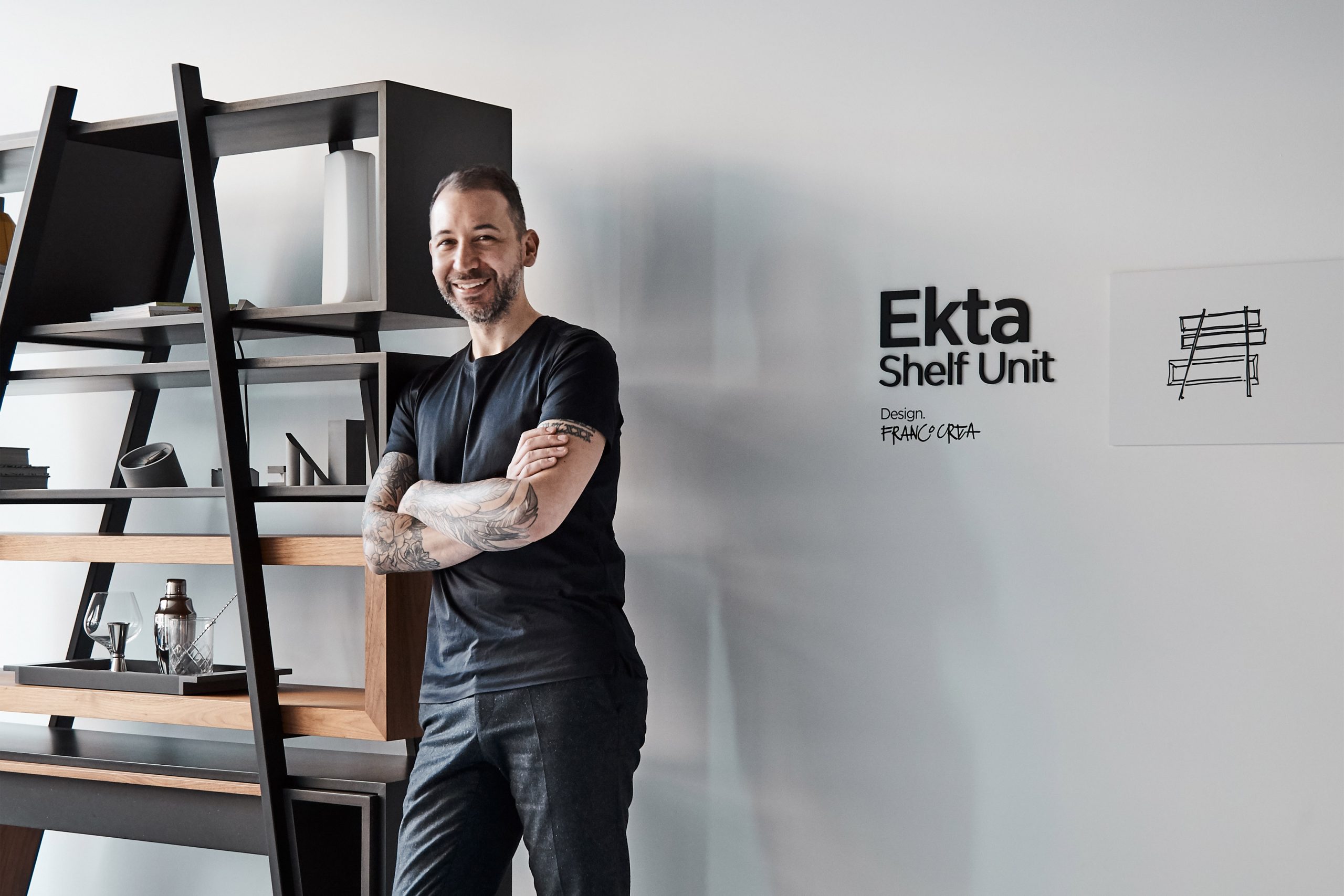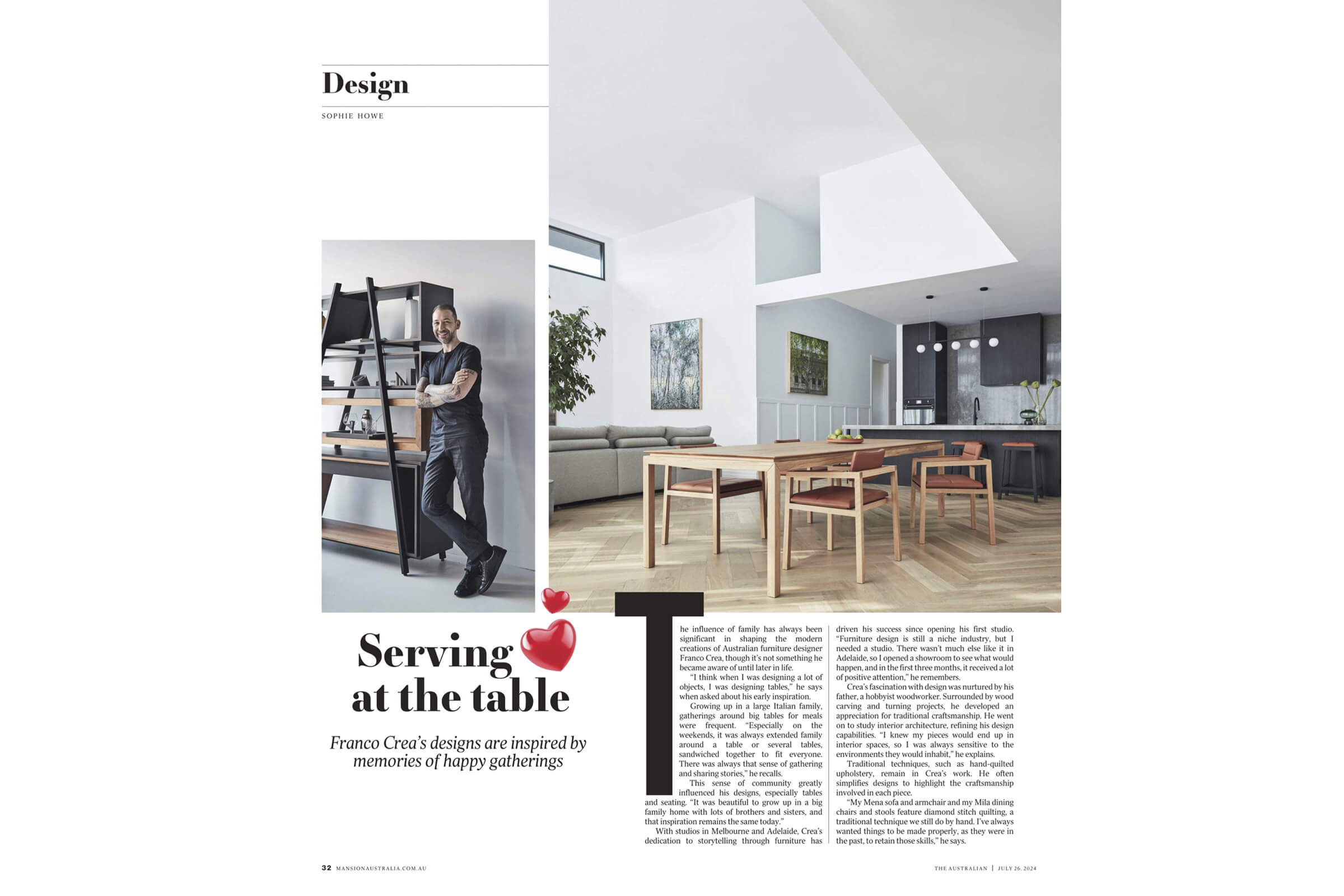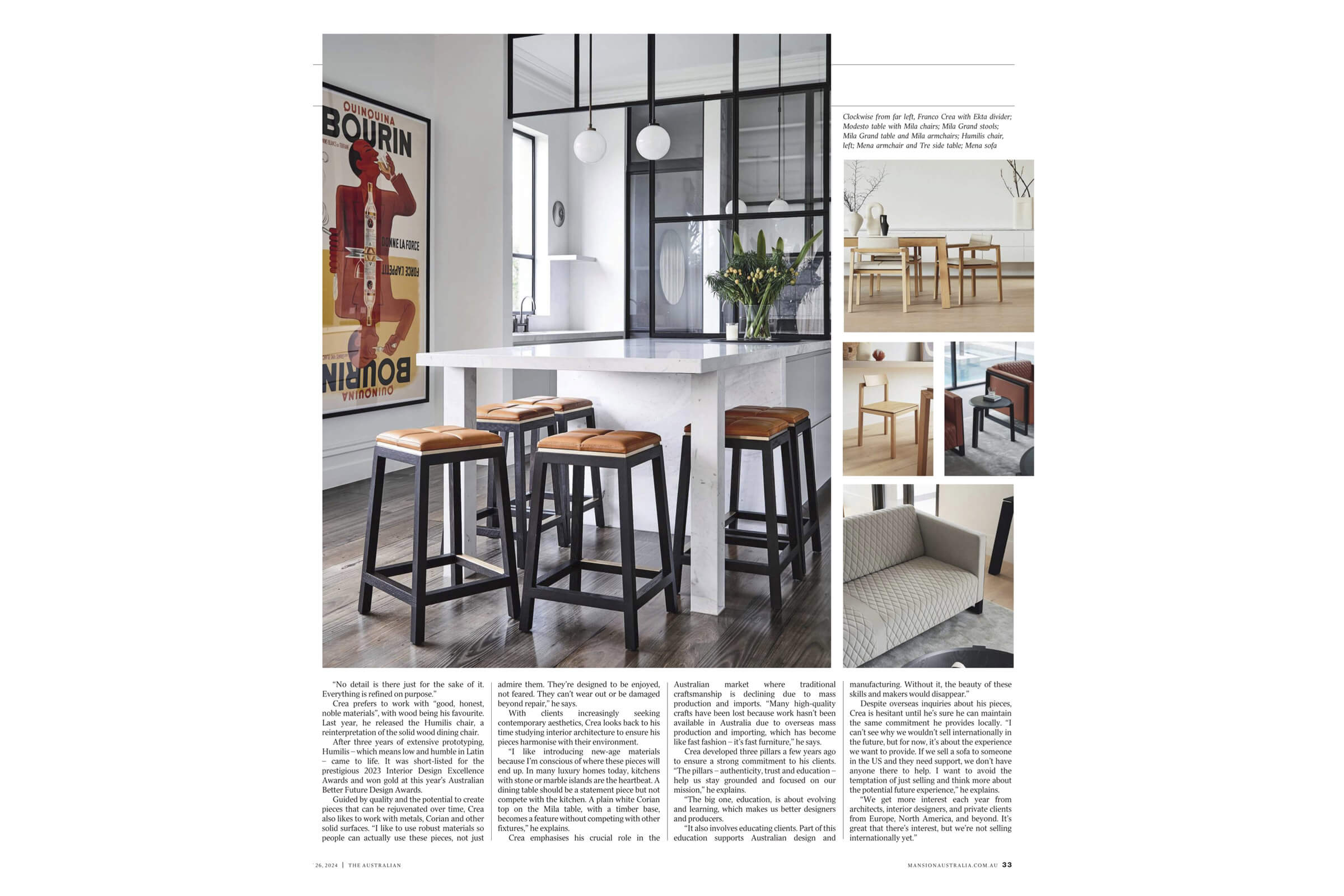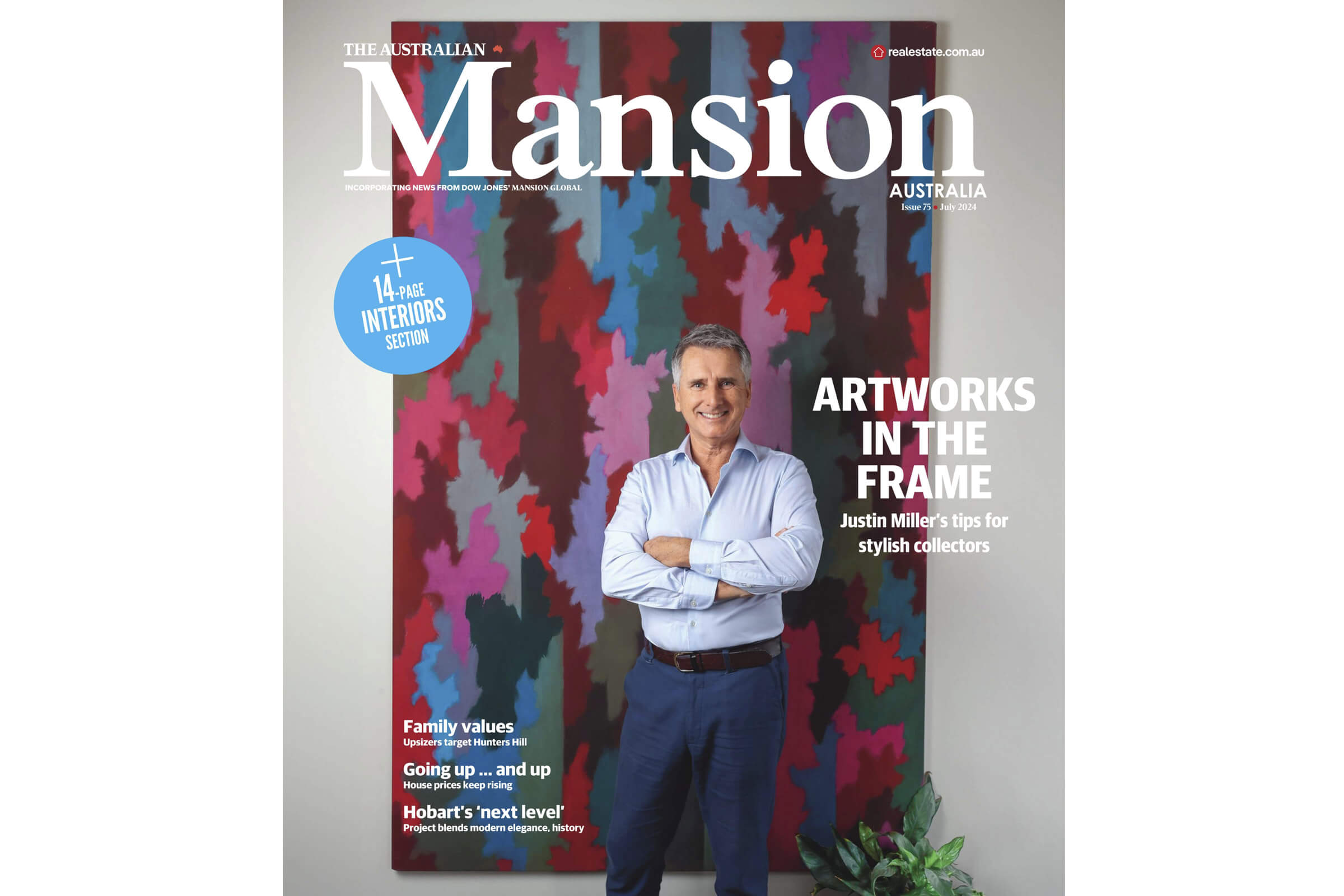Interview

Mansions Magazine
It was a pleasure sharing my story with Sophie Howe from The Australian.
Thank you Sophie for translating our chat beautifully into words and sharing my story with Mansions Magazine.



Serving at the Table
The influence of family has always been significant in shaping the modern creations of Australian furniture designer Franco Crea, though it’s not something he became aware of until later in life. “I think when I was designing a lot of objects, I was designing tables,” he says when asked about his early inspiration.
Growing up in a large Italian family, gatherings around big tables for meals were frequent. “Especially on the weekends, it was always extended family around a table or several tables, sandwiched together to fit everyone. There was always that sense of gathering and sharing stories,” he recalls.
This sense of community greatly influenced his designs, especially tables and seating. “It was beautiful to grow up in a big family home with lots of brothers and sisters, and that inspiration remains the same today.”
With studios in Melbourne and Adelaide, Crea’s dedication to storytelling through furniture has driven his success since opening his first studio. “Furniture design is still a niche industry, but I needed a studio. There wasn’t much else like it in Adelaide, so I opened a showroom to see what would happen, and in the first three months, it received a lot of positive attention,” he remembers.
Crea’s fascination with design was nurtured by his father, a hobbyist woodworker. Surrounded by wood carving and turning projects, he developed an appreciation for traditional craftsmanship. He went on to study interior architecture, refining his design capabilities. “I knew my pieces would end up in interior spaces, so I was always sensitive to the environments they would inhabit,” he explains. Traditional techniques, such as hand-quilted upholstery, remain in Crea’s work. He often simplifies designs to highlight the craftsmanship involved in each piece.
“My Mena sofa and armchair and my Mila dining chairs and stools feature diamond stitch quilting, a traditional technique we still do by hand. I’ve always wanted things to be made properly, as they were in the past, to retain those skills,” he says. “No detail is there just for the sake of it. Everything is refined on purpose.”
Crea prefers to work with “good, honest, noble materials”, with wood being his favourite. Last year, he released the Humilis chair, a reinterpretation of the solid wood dining chair. After three years of extensive prototyping, Humilis – which means low and humble in Latin – came to life. It was short-listed for the prestigious 2023 Interior Design Excellence Awards and won gold at this year’s Australian Better Future Design Awards.
Guided by quality and the potential to create pieces that can be rejuvenated over time, Crea also likes to work with metals, Corian and other solid surfaces. “I like to use robust materials so people can actually use these pieces, not just admire them. They’re designed to be enjoyed, not feared. They can’t wear out or be damaged beyond repair.” he says.
With clients increasingly seeking contemporary aesthetics, Crea looks back to his time studying interior architecture to ensure his pieces harmonise with their environment. “I like introducing new-age materials because I’m conscious of where these pieces will end up. In many luxury homes today, kitchens with stone or marble islands are the heartbeat. A dining table should be a statement piece but not compete with the kitchen. A plain white Corian top on the Mila table, with a timber base, becomes a feature without competing with other fixtures,” he explains.
Crea emphasises his crucial role in the Australian market where traditional craftsmanship is declining due to mass production and imports. “Many high-quality crafts have been lost because work hasn’t been available in Australia due to overseas mass production and importing, which has become like fast fashion – it’s fast furniture,” he says.
Crea developed three pillars a few years ago to ensure a strong commitment to his clients. “The pillars – authenticity, trust and education – help us stay grounded and focused on our mission,” he explains. “The big one, education, is about evolving and learning, which makes us better designers and producers. It also involves educating clients. Part of this education supports Australian design and manufacturing. Without it, the beauty of these skills and makers would disappear.”
Despite overseas inquiries about his pieces, Crea is hesitant until he’s sure he can maintain the same commitment he provides locally. “I can’t see why we wouldn’t sell internationally in the future, but for now, it’s about the experience we want to provide. If we sell a sofa to someone in the US and they need support, we don’t have anyone there to help. I want to avoid the temptation of just selling and think more about the potential future experience,” he explains. “We get more interest each year from architects, interior designers, and private clients from Europe, North America and beyond. It’s great that there’s interest, but we’re not selling internationally yet.”
Words: Sophie Howe
Publication: Mansions Magazine by The Australian, JULY 2024